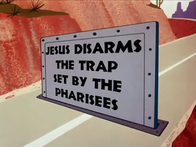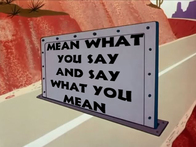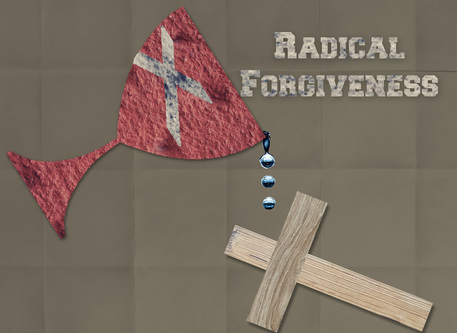|
-Rev Melissa Fain- In the past few months there have been moments where I felt I've been on the wrong side of things. Not that I've chosen the wrong side of an argument or anything, but I've found myself being on the inside of need instead of the outside. Not long after my ordination, a ministerial colleague expressed what she felt was my biggest pastoral gift: speaking truth to a system. She told me I named something no one was looking at, and correctly voiced that if nothing was done about it it would not be helpful. Now, I'm not spilling the tea here. You're not going to hear the details of that event, just that it's repeatable. On the outside of conflict, I can usually bring down the mob and calm everyone down. I understand the reasons beyond the initial conflict. (Honestly, it's probably why my favorite theology is the systematic kind, the kind that requires us to connect the dots.) February 14th marks a pretty big milestone this coming year. I'll be ordained exactly one decade. If you count my church work before the ordination, I've been focused on working for God for twenty years. Just for context, that's little over half my life, and when you consider my volunteer work before that... well, that's most of my life. With that being known, we've gotta have a pretty real conversation here. It's time for me to speak truth to this system. I've been on every side of it. I've been a Christian child, young adult, and adult. I've been a volunteer and paid staff. I've been everything from a choir director, to a youth leader to a senior minister*. I've been inside the church, in a ministry outside the church, and completely outside the system. I've seen it all. I've heard it all. I know what if feels like to be a congregant in a dying church, and I know the frustration of being a minister in a broken church. I've witnessed the heartbreak of a congregation, and mourned with them when their minister betrayed them. Yes, I have the Masters of Divinity to show I have the book smart, but I come to you with street smart to back it up. The Problem(s)There are a few problems going on in the church, and some of them overlap, which is probably why it has been so difficult to nail it down and deal with it. This will be a very honest mirror church, so it's not gonna look pretty. 1) Most of humanity will sacrifice what is right for comfort.I used to think everyone chose to join a church/temple out of the deep desire to make the world a better place and grow closer to God. In reality people join churches for a variety of reasons, and those two don't often come in first place.
Those things are comfort. They're selfish. Sometimes it's good to be selfish, and I've written on those things before, but they are not the catch-all for church. No matter what, most people don't want to truly sacrifice for anything. They don't want to actually have to build something, or create. At the end of the day, the church building is comfortable. So many of us have felt God has left the building, yet we stay because we've put the building among the assets. Why can't we fix the church inside the physical church? Ask that to the Israelites, who were called to the Wilderness. They had a building too. They had comfort, but their comfort were as slaves, and we've become sedentary slaves to our physical church. 2) No one wants in once they've been kicked out.
3) We are blind to ourselves.There was this craze in the Aughts of looking at mental illness as a television special. Hoarders, over-eaters, abusers... it didn't matter. If they were willing to get better in front of a camera, there was a show willing to be produced. We watched celebrities almost die from drug overdoses, while a few channels over we watched a woman try to explain why she needed to keep 28 used pizza boxes. It was all depressing. While maybe progress was made in the episode, usually the person sifted back into their old way of life, and some of them died from their illness. I believe the Church is suffering from a spiritual illness that is attacking the Body. Some of the overarching themes of these twenty year old shows, especially the ones about hoarders, might at least help us see the problem.
4) The Problem is always "over there."On some level, I can take the first three. I have focus with the the first three problems. Number four is the one problem that sneaks in and takes away any real power for change. Someone posts a story of church brokenness, and the Church might be outraged, and even sad. Their very friends might show the broken person specifically sympathy. Then, nothing at all happens or changes? Why? Because the problem, an entire Church problem, suddenly turned into a specific congregation problem. The congregation in question didn't hear the outrage because the church (or the person themselves) swiftly cut "the problem" out, taking away any substantial power to change the system. Eight years ago someone asked me what they could do to help my situation. I told them, "Stay." They did not stay, and it took away their power to make a congregation healthy for future ministers and congregants. Here's where the Church as a whole really turned into monsters. There is part of our call as Christians we've totally neglected since at least 1992, more than likely longer. We are called to name our failure, bring it to Christ, and die at that cross! Death is actually part of the story! Instead we take our sins, put them on a glorified scapegoat and cut those people loose to do the dying for us! HERE'S MY ANGER! HERE'S MY OUTRAGE! It's not about having a cushy job in a cushy church! You've thought that's what I'm doing this for? Once those churches cut those people out they talk about the problem in the past tense. In reality the person left, but the problem stayed to fester and grow. Some of those who left take years to realize they haven't been carrying someone else's problem. The damage is huge on both sides! What gets me the most, is Brueggemann was right in his second edition preface to "The Prophetic Imagination": A confrontational model assumes that the "prophetic voice" has enough clout, either social or moral, to gain a hearing. Currently, the old "prophetic stance" of such churches lacks much of that authority, so that the old confrontational approach is largely ineffectual posturing. Given that social reality, which I think cannot be doubted, I suspect that whatever is "Prophetic" must be more cunning and more nuanced and perhaps more ironic. -xii Here's your irony! Here's your prophet telling you in 2001 you will ignore him because the Church stopped listening to her prophets! What has that truth gotten us? Our insistence to point the finger at someone or something else means so many congregations are gasping for breath at death's door, and no one with the power to stop it cares. You have spent fifty years slowly digging your own graves. Now it's done. You sit in your pit and you'd rather starve than admit God's not in the grave. God's here with me. God's here with those you've cut loose. God is alive, on the other side of death, but for you to reach Him, you have to accept your inevitable fate. You have to admit you met death. Something will die in that grave. It will either be your old way of "church," or the Church itself. Either way, I'm done waiting. I'm done posturing. This year, I'm moving forward. I'm moving on. I'm going where God is. * The links to congregations and Christian institutions are for reference only. To link the "senior minister" job is unnecessary. It's important to know that call was to a broken congregation, but as I feel they can find healing, I don't want to put focus on them before they do.
-Rev Melissa Fain- "You're lost," she says. "I'm not lost! I know exactly where I'm going," he replies. "Oh really? Where are we then?" "Uh..." "We should ask for directions." It's a classic pre-GPS story. Guy get's lost, and girl calls him out on it. It always involves stopping and asking for help. If you know this tale you know how it continues. The assumption is made that it's either her fault for not reading the map correctly, or he'll eventually figure it out if they only drive a little further. Inevitably it always ends with the guy admitting they're lost and going into a gas station to ask how to get to that preferred destination. What is it about our nature that keeps us from admitting defeat while on a journey? It can't be our Candy Crush, constant action oriented lives. The fast paced commercials, explosive games and fidget spinners came long after our desire to keep from admitting failure. It's ingrained in us. It must have started a millennia ago when failure meant the wolf or lion dined on your flayed rib cage. Back then the stakes were much higher than they were when an aggravated driver had to admit there was a need to stop and ask for help. This primal instinct might explain individual distress of admitting failure on a journey, but what about a church? Churches spend big bucks to create a vision plan. Right now, they are a dime a dozen. Wanna' fix the church? Follow our 5 easy steps for only $5,000! At the end of the journey, you will have a completely rebuilt church! For those it works for, it really works. The money is well spent, and at the end of the journey these churches have a new beginning. But, for the churches it doesn't work for it seems they don't want to admit they need something that is just right there within reach. They need to stop and ask for directions. It sounds so simple, I know. It's actually the first step in most guides when one is lost. Here is the BSA (Boy Scouts of America) version: Sit: Or in other words: stop! Think: What tools and abilities do you already have? Observe: Take in your current situation. What do you need to deal with as soon as possible? Plan: How are you going to get out of the mess you are in? Do you need to build a shelter to survive the night? Every group or person can get lost. Our ability to survive being lost often requires our ability to stop. The first step to stopping is admitting we are actually lost. It means accepting the fact that we are not following God's path anymore. God wants us to admit error, not so we can suffer God's divine red pen, but so we find the right path again. It's so easy... but yet so hard. 15 The Lord replied, “Go! This man is the agent I have chosen to carry my name before Gentiles, kings, and Israelites. 16 I will show him how much he must suffer for the sake of my name.” 17 Ananias went to the house. He placed his hands on Saul and said, “Brother Saul, the Lord sent me—Jesus, who appeared to you on the way as you were coming here. He sent me so that you could see again and be filled with the Holy Spirit.” 18 Instantly, flakes fell from Saul’s eyes and he could see again. He got up and was baptized. 19 After eating, he regained his strength. He stayed with the disciples in Damascus for several days. 20 Right away, he began to preach about Jesus in the synagogues. “He is God’s Son,” he declared Acts 9:15-20 NRSV Movies have these cliches. Let me share some of them with you. If there is a dog in the movie, that dog will always bark at the bad guy. An action hero never ever wears prescription glasses. Bombs are usually defused only if there are less than five seconds remaining on the clock. People can drive moving cars while looking directly at the passenger. They also tend to move the steering wheel 100 times more than the average driver. In a chase scene, most women will fall down at some point. Whenever someone appears to be working on a computer, the screen is so bright it projects itself on the person’s face. Or at least, when they are accessing a computer that doesn’t belong to them, they can easily break the password by looking at the person’s desk or remember some obvious clue given in a previous scene. Also, if a bad guy wants redemption they must die for it. It has to be a sacrificial death, where it saves the good guys in the process.
Maybe this is why biblical movies are a tough sell, especially the New Testament stories. Could you imagine the pitch? Okay, so we have this guy. It turns out he is the Son of God. The Son of God, really? Does he come in and destroy the bad guy with lightening or hellfire or anything? Oh, no. He’s a pacifist. He doesn’t hurt a single person the entire movie. Right… well, go on. Anyway, he starts to gain this following. People are willingly leaving their family over this guy. Oh, so with his big following he overtakes the government, and puts a new system in place? Umm, no. In fact, the government in rule when we comes in is still the same government when the story ends. Then the followers… No, the followers mostly die terrible deaths. The bad guys… Mostly get away in the end. It’s not the story we want to hear. We want our happy endings. We want our “and they lived happily ever after.” If not, we at least want to know the bad guys were punished. That’s just not how life works, and that’s not how Jesus asked us to react to life. There are two important pieces of Jesus Christ we must understand before we can get what’s going on in our scripture. First, Jesus died. The resurrection is only as spectacular as the real death that came before it. As Christians, as a church, we are continually called to that death. When we try to emulate the resurrection without allowing our old selves to truly die, we end up with an undead church. Seriously. It’s the zombie church, and I’ve seen it over and over again. They can’t do what they used to do, but they refuse to let it go. This means they only appear alive, but they are really already gone. Until they let go, they can’t truly be reborn. They bite others, infecting congregants. I’ve spent the last few years helping the wounded. It’s dangerous stuff. Saul, the man who gathered up Christians to be murdered, died on that road. Not literally. His heart did not stop, but who he was ended in that moment. This was the future leader of the early church. Anything from that previous life, necessarily had to die. Second, Jesus came to end the cycle of violence and hate. You know what’s interesting about the place where I’m at? I hear the problem from every angle, but no one wants to take blame. So much is broken right now. The General church is broken. The region is broken. Churches all over the nation are broken. Ministers are broken. Congregants are broken… But, blame always belongs to someone else. We all have our stories about the minister, the church, the congregant, the region, or the general suck that caused the problem. Do we realize we scapegoat the problem? We place the blame on something or someone who can’t do anything about it. We can’t change the people or the long gone system that hurt us. Sure, we can put our burden on them, and send them out as our sacrifice, but it doesn’t solve the problem. Do you realize Ananias could have scapegoated Saul? He could have taken one look at Saul and said, “Oh no, Lord. That guy is the reason we are in hiding. That guy is the reason several of my friends are now dead. I’m out.” Can you see the seriousness of it all? The future of the Christian story was put in Ananias’ hands, and Ananias had justification to let Saul rot in his blindness. “You have heard that it was said, An eye for an eye and a tooth for a tooth. But I say to you that you must not oppose those who want to hurt you. If people slap you on your right cheek, you must turn the left cheek to them as well. When they wish to haul you to court and take your shirt, let them have your coat too. When they force you to go one mile, go with them two. Give to those who ask, and don’t refuse those who wish to borrow from you. “You have heard that it was said, You must love your neighbor and hate your enemy. But I say to you, love your enemies and pray for those who harass you so that you will be acting as children of your Father who is in heaven. He makes the sun rise on both the evil and the good and sends rain on both the righteous and the unrighteous. If you love only those who love you, what reward do you have? Don’t even the tax collectors do the same? The words of Jesus from Matthew 5:38-46. Do you see the potential that sits in our laps? Do you see the possibility of the future of the church? God is not asking us to heal a murderer. God is not asking us to redeem a villain. God is asking us to forgive our fellow brother or sister in Christ, and invite them back into the family, with no strings attached. What is being asked of us is not nearly as difficult as what God was asking of Ananias. Ananias did it. Ananias healed the murderous villain. In doing so the future of the Early Church took root. Can we do what God is asking of us? Can we give it up at the cross? Can we let go of the scapegoat, and personally sacrifice for the future? 11 The Lord instructed him, “Go to Judas’ house on Straight Street and ask for a man from Tarsus named Saul. He is praying. 12 In a vision he has seen a man named Ananias enter and put his hands on him to restore his sight.” 13 Ananias countered, “Lord, I have heard many reports about this man. People say he has done horrible things to your holy people in Jerusalem.14 He’s here with authority from the chief priests to arrest everyone who calls on your name.” 15 The Lord replied, “Go! This man is the agent I have chosen to carry my name before Gentiles, kings, and Israelites. 16 I will show him how much he must suffer for the sake of my name.” 17 Ananias went to the house. He placed his hands on Saul and said, “Brother Saul, the Lord sent me—Jesus, who appeared to you on the way as you were coming here. He sent me so that you could see again and be filled with the Holy Spirit.” 18 Instantly, flakes fell from Saul’s eyes and he could see again. He got up and was baptized. 19 After eating, he regained his strength. Once, there was a young girl. She was born into poverty. Her parents had immigrated to the United States to escape the great potato famine of Ireland. From an early age she suffered. She had five siblings, but two passed away at birth. When her mother passed away, her dad was a horrible caregiver. Finally, giving up, he dropped her brother and her at a poor house. Meanwhile, the girl was also blind. As a child, she was an uneducated blind girl. Anyone who would have seen her would have thought: this girl would amount to nothing. That was not the case. No one would have guessed this girl would find her way into an academy for the blind, become the top of her class, and eventually be the woman who would make the breakthrough with Helen Keller. Anne Sullivan was counted out as child, but there was potential in that soul. Potential that would change the world. Our history is often shaped by second chances, or missed opportunities. For Anne Sullivan, she was determined not to spend her life in poverty. It was during a state inspection, Sullivan convinced one of them to allow her to leave and enroll in a school for the blind. For Franklin Sanborn, the man who agreed to let her go, it was saying yes to someone who appeared like a lost cause by most definitions. I know it doesn't make sense to compare Anne Sullivan to Saul. It appears the only connection is both were blind. I want to compare their potential greatness. For that matter, anyone's potential greatness.  It is easy to see a diamond sitting in a setting, lying on a jeweler's table. Some of us can even tell the quality of the 4 C's to that diamond. Then it can be given a value. What many of us can't do is see the value of a diamond just dug up from the earth. I'm sure, many of us would think we are looking at a piece of trash. No real value at all. We like to celebrate a beautiful person. We raise them up. We give them love and adoration. We tend to forget, many of these people started out as raw, unpolished, and unrefined. They didn't grace the jeweler's table with the other precious gems. In some cases, they had a terrible and dark history. Their history was paved with the death of others. Now whether that was the fault of others, like Anne Sullivan's story, or the person was responsible, like Saul, we don't want to give our focus to these people. They are not on the inside. They are not part of the group. Newsflash, God likes outsiders. God likes the underdog. God is known to pick those on the outside to change the inside. Moses lived with the enemy before he became the liberator of the Israelites. Issac, Jacob, and Joseph were not first born children. Yet, they are the ones who inherited the birthright and changed the story. Saul was a bad guy. He watched Stephen being stoned to death! This was one of the Apostles! Before the blinding on the road to Damascus, no one within the Christian story would have seen anything redeemable in this man. In fact, he had to change his name because no one trusted "Saul." Yet, this would be the guy who would write the next chapter in the Christian story. More than any other Apostle, Paul was the biggest evangelist in early Christendom. What does that mean for us? Don't assume who are the people who are going to change the world. We can look at all those pretty diamonds out there, when we should be looking for an uncut gem. I don't know why I decided to visit her. My fate was sealed. I was leaving, and it frankly didn't matter what I did by that point. I no longer owed anyone, anything. Actually, now they owed me. Two months of full pay, the opportunity to stay in the parsonage until February, and money to help move. Thinking back on it all, I still feel dirty. I wanted to enjoy the new life that had just been born. Instead I'd cry at random times during the day, sometimes while holding my baby girl. Still, only a few days after it all went down, I went to visit a congregant. Even though the vote was private, I knew where she fell. All the Elders voted to let me go. I also knew, many of those votes were manipulated and strong armed. "It is the only way to keep the church together." (It led to a church split.) "Deacons don't have votes." (They did.) "This is family." (That one was true.) More alarming was the communities words, "Oh, I see it happened again." I would eventually learn it happened in some from to almost every minister post 1980. Why 1980? That's when the church split over charismatic differences. The split eventually failed, but the damage remained. Researching their history I heard and read of ministers damaged and broken by the church. They always tried to oust the minister privately, but they couldn't do that with me. I came broken. Seriously, right after I took the call I broke my ankle. Then, once I was on the mend, I got pregnant. Everything hit the fan just as I was in a place to be well. I knew my life would take certain turns after I left that town. In the beginning, there would be morbid curiosity. We like to look at a car crash. There is something that causes us to drive just a little slower than we need to so we can crane our neck back and look. I knew immediately following the event I could have capitalized on the gore. At the same time, I knew I needed to stay quiet; to let the event sit. I wasn't called to speak of woundedness. I was called to map the road to healing. I'm not called to be the poster child for the Flashy New Church™. My experience is not one that is comfortable, or easily branded. I'm also not unique. This one probably breaks my heart the most. There are broken ministers, congregants, and churches all over the United States. The problem is, and yes you can call this a problem, we are stuck on the car wreck. "Wow did you hear what so-in-so church did?" "That was horrible!" Then out of sight; out of mind. No one talks about the car crash when they get to the grocery store. By then, you are more worried whether you are going to get the right brand of snack cake. Once your home, it might only be an interesting side note to tell anyone home Then it's forgotten. Meanwhile, someone is still suffering. Someone is possibly mourning. Everyone wants to tell their story, but no one wants to listen to recovery. Recovery is boring. Recovery is only interesting if something flashy happens. We want a good story. Who can put the church's problem in a click-bait title, where the problem is solved in exactly three steps? The answer will be simple to understand, like, "Eat less; exercise more." Doing the answer will be blood sweat and tears. Sometimes, literally. Getting the answer will be like getting pregnant, and following the answer will be like carrying that answer in your gut for nine months. It will be about ripping you apart to get to God's grace and love. It's about getting to the wilderness, and being tempted. Then, when that flashy choice is given, turning it down. It's about knowing everyone has moved along, and you are now without support. This is the right way to deal with being sent down the wrong path. If that's not enough for you: here's the one liner. The obvious line that will get us on track is this: The answer to the church is getting to know the community they serve, and acting in that community with Christ's love. I would love to hear from you. There are several ways to communicate and connect:
Join Fig Tree's Subreddit Follow our Pinterest page Like us on Facebook Follow us on Twitter I love this rock. I've shared it before. A few years back Atlanta had a really bad flood. Six Flags, and I-20 next to it was under water. All the neighborhoods in and around Clarkdale Elementary was completely submerged. (The smell of mold lingered in the area for years. There are still houses that remain vacant, because they simply need to be torn down There is nothing else that can be done with them..) Part of the road in front of our home was washed out. It made it precarious to pull out of our drive way for months. My husband worked at a school. The road next to it was completely washed out. That's where I got this rock. Before the flood it was buried under feet of dirt and pavement. I keep it to remind myself of the fragility of life. Even things we think are solid can be ripped apart in the matter of hours, maybe minutes. That's not what I'm here to talk about today. When the waters receded, and cleanup began, I watched the world being put back together. There were four areas, near to where I lived, that were hit pretty bad. Off of 92 there was an old bridge that was completely obliterated. There was the road in front of our home that was half way washed out. There was the road next to the school that was completely washed out; where I got my rock. Finally, there was Clarkdale Elementary School, completely flooded out.  There was something that didn't happen to these places after the flood. They were not rebuilt to be exactly what they had previously been. The storm came. It left, and these areas were found lacking the ability to withstand such a situation. Even in the case of Clarkdale, where there was nothing that could be done to keep those waters out of the school, they had the opportunity to make it better for those kids. Not only was the road in front of my home repaired with extra fortification, a fence was put up to protect people from the chasm that lay on the other side of it. The bridge off of 92 was never rebuilt. A better path was chosen for the cars to cross. As for the school road? A bigger pipe was installed so it could handle the waters if they were to return. The point is, when a structure is tested, and fails, the new structure should be built to withstand the very thing that made it fail. Bringing the focus to the church, in many ways the storm is over. For the American Church, we've come through broken, and in pieces. Over the past half decade I've been to many of these churches, and you have no idea how many just want to rebuild to some pre-storm status. More than that, we think we can do it when our very core has been washed away to almost nothing. We can't do that! Why are we so nuts?! The answer is incredibly simple. Research how to rebuild with the churches new situation in mind. Don't discount new technology (i.e. research) when rebuilding. Follow the new plan! The problem is extremely difficult. We can't do any of that until the church accepts the storm came, and things can't be done the same way anymore. In some cases, it's just making what they already have better. In many cases, it's completely changing things up. That's scary. Old "building plans" can't be used. (You know, the classic method of finding a new Vision. Doesn't work anymore. Congregants know how to hijack the system in their favor.) Churches are so focused on what they had, they can't accept what God wants them to be. Solution: Have a funeral for the church of the 1990's, and mean it. You can't bring it back, and you can't move on until you let it go. The storm is over. Pick up the pieces and rebuild. I would love to hear from you. There are several ways to communicate and connect:
Join Fig Tree's Subreddit Follow our Pinterest page Like us on Facebook Follow us on Twitter Matthew 22:15-22 CEB 15Then the Pharisees met together to find a way to trap Jesus in his words. 16 They sent their disciples, along with the supporters of Herod, to him. “Teacher,” they said, “we know that you are genuine and that you teach God’s way as it really is. We know that you are not swayed by people’s opinions, because you don’t show favoritism. 17 So tell us what you think: Does the Law allow people to pay taxes to Caesar or not?” 18 Knowing their evil motives, Jesus replied, “Why do you test me, you hypocrites? 19 Show me the coin used to pay the tax.” And they brought him a denarion. 20 “Whose image and inscription is this?” he asked. 21 “Caesar’s,” they replied. Then he said, “Give to Caesar what belongs to Caesar and to God what belongs to God.” 22 When they heard this they were astonished, and they departed. This is the sermon given to Marietta First Christian Church on 10/19/14 Imagine with me a gigantic cardboard box, being held up with a long stick. Coming from the stick is a rope. Where does the rope lead? The rope goes from the stick to the brush where the disciples of the Pharisees and supporters of Herod or quietly giggling, “Tee Hee Hee!” It’s a trap! To Jesus, it’s a clear trap. Wiley Coyote, using Acme products, could lay a less obvious trap! Let me explain just how obvious this whole thing is. First of all, you have the followers of Herod who really don’t care what the Law allows, just as long as you pay the tax. By this time, Romans had ceased most taxes to their own citizens because they could tax occupied countries, like Israel, instead. A few of the rulers would try to be as generous as possible with the people, trying to keep the taxes down. The Herodians were not one of these groups. Herod and his family in general, kinda had an ego complex. For goodness sake, he named at least three children after himself. Most people would stop at one, not Herod. He often played both sides of the field. On one side he rebuilt the temple, but on the other he put at big Roman Eagle at the entrance. Jesus would have known what the followers of Herod wanted to hear, and that they didn’t really care what the law had to say about it. If you think the Herodians played both sides, well so did the Pharisees. Privately they loathed the temple tax. They weren’t too happy about that eagle either. They didn’t think it was biblical in the least. However, if one were to stand up against the tax it would label them a traitor to the Roman government and they most likely would be executed. They were hypocrites because they would rather allow the widow to put her food money into the pot and starve than stand up for her and face the consequences. Jesus would have known what the Pharisees wanted to hear, and the repercussions for saying it.  The trap was as simple as a box being held up with a stick. If Jesus called the tax unbiblical it would mean almost certain death. If Jesus suggested we should pay our taxes it would anger his supporters, possibly putting them into frenzy. They would possibly kill him for being a false prophet. What’s the son of God to do? Surely not walk into an obvious trap? No. As he had done two times before this moment, he disarms the trap laid out by the Pharisees. “Give to Caesar what is Caesar’s, and Give to God what is God’s.” BOOM! Mic drop; Jesus out. He leaves the Pharisee’s speechless, scratching their heads, and wondering what just happened. Now this is the moment many ministers talk about taxes and whether the government does or does not fit into the church. Many more ministers use this scripture to launch a stewardship campaign to urge congregants to give more. You’re not going to get that today. Today, I want to talk about the Herodians and the Pharisees. The question of whether one pays their taxes wasn’t posed to get an honest answer. I repeat my initial statement: It was a trap! When we look at scripture it’s always important to consider two things:
God acts from what we mean, not what we say. The Pharisees and Herodians were saying they wanted hear what Jesus thought about taxes. They were meaning to get Jesus killed. These are two very different things, and Jesus acted into their meaning rather than what they were saying. If Jesus was acting in what they were saying I imagine he would have pulled them aside and engaged in a dialogue. They might have explored the subject together over a meal. (That was kinda Jesus’ thing, talk over a meal.) Instead, he gives a one sentence response and moves on. That’s where it is. That’s the point. When we seek to engage God in the world and in prayer, it really matters whether we are authentic with our words, because God is going to know the truth in our heart. I remember working through the Parable of the Pharisee and the Tax Collector from Luke 18. If you remember, they were both praying. From first glance you would think the Pharisee was being arrogant and the tax collector was being humble. In researching what the Pharisee was doing, I learned the he was going through a ritual to show humility. They were really doing the same thing, even though it looked different. It was their meaning behind their action that differentiated them. The tax collector was truly acting in humility, and the Pharisee was arrogant.  Where does that leave us? Y’all are in the process to find the next step in your spiritual journey. If you are finding that journey, it's going to help you rediscover what FCC Marietta is, and can get you on track to find a new senior minister, you will met with an important objective. It will not be good enough to say you want to go through the process. You must mean what you are saying as well. This is where many church revitalizations get derailed. They say one thing and mean another. God will not help you find your future, unless you are bold enough to act like you want to get it. That’s where the celebration comes in. True, if we don’t mean what we say, we are likely to just get disarmed and nothing changes. But, if we mean what we say, we could get something real and substantial. Living water, if you are the woman at the well. Relationship, if you are Zacchaeus. Baptism, if you are the Ethiopian eunuch. What do you think God could give you if you ask for revitalization and mean it? There’s only one way to find out.
Exodus 32:1-14 CEB The people saw that Moses was taking a long time to come down from the mountain. They gathered around Aaron and said to him, “Come on! Make us gods who can lead us. As for this man Moses who brought us up out of the land of Egypt, we don’t have a clue what has happened to him.” Aaron said to them, “All right, take out the gold rings from the ears of your wives, your sons, and your daughters, and bring them to me.” So all the people took out the gold rings from their ears and brought them to Aaron. He collected them and tied them up in a cloth. Then he made a metal image of a bull calf, and the people declared, “These are your gods, Israel, who brought you up out of the land of Egypt!” When Aaron saw this, he built an altar in front of the calf. Then Aaron announced, “Tomorrow will be a festival to the Lord!” They got up early the next day and offered up entirely burned offerings and brought well-being sacrifices. The people sat down to eat and drink and then got up to celebrate. The Lord spoke to Moses: “Hurry up and go down! Your people, whom you brought up out of the land of Egypt, are ruining everything! They’ve already abandoned the path that I commanded. They have made a metal bull calf for themselves. They’ve bowed down to it and offered sacrifices to it and declared, ‘These are your gods, Israel, who brought you up out of the land of Egypt!’” The Lord said to Moses, “I’ve been watching these people, and I’ve seen how stubborn they are. Now leave me alone! Let my fury burn and devour them. Then I’ll make a great nation out of you.” But Moses pleaded with the Lord his God, “Lord, why does your fury burn against your own people, whom you brought out of the land of Egypt with great power and amazing force? Why should the Egyptians say, ‘He had an evil plan to take the people out and kill them in the mountains and so wipe them off the earth’? Calm down your fierce anger. Change your mind about doing terrible things to your own people. Remember Abraham, Isaac, and Israel, your servants, whom you yourself promised, ‘I’ll make your descendants as many as the stars in the sky. And I’ve promised to give your descendants this whole land to possess for all time.’” Then the Lord changed his mind about the terrible things he said he would do to his people. This post is for all those congregants wanting to revitalize their church. With so many, "Why is the church dying?" posts, let me explain why the church is dying in relation to revitalization.
Commandment 1: "I am the Lord your God, who brought you out of the land of Egypt, out of the house of slavery," Commandment 2: "you shall have no other gods before me." Commandment 3: "You shall not make for yourself an idol, whether in the form of anything that is in heaven above, or that is on the earth beneath, or that is in the water under the earth. You shall not bow down to them or worship them." The Israelites make an idol, use nearly the same line from commandment one, and follow it up with putting another god before their eyes. (Now, there is question whether they were attempting to force God down by creating an idol, or giving their worship to another idol. The issue is still wrong.) In their impatience, the people took a seed of truth from the commandments and used it to follow the wrong path. Those who shake their heads, wondering why transformation didn't take, usually are dealing with a situation where impatience or fear take root and the people begin to craft their own plan. Not dealing with their real problem, they paint a the false reality of transformation over their bad habits and choices. Church revitalization requires letting go of the past and working hard over time. Finally, it requires faith that God will be there. It's really kinda easy to understand. Unfortunately, it's not so easy to follow. I would love to hear from you. There are several ways to communicate and connect:
Join Fig Tree's Communication Board Join Fig Tree's Subreddit Follow our Pinterest page Like us on Facebook Follow us on Twitter |
Categories
All
Archives
October 2023
|












 RSS Feed
RSS Feed